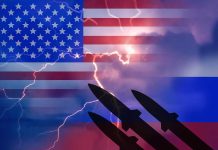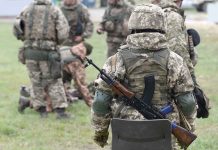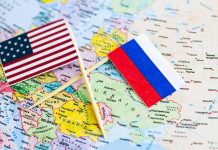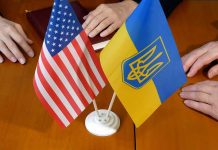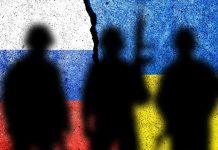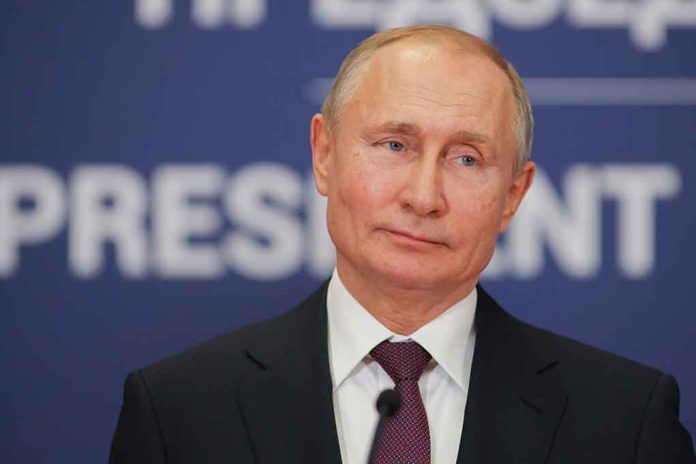
Russian forces reportedly extract U.S. operative Kenneth M. from Ukraine, raising questions about American defections and espionage during wartime.
At a Glance
- Russian state media reports extraction of U.S. citizen “Kenneth M.” from Ukraine’s Donetsk region.
- Alleged spy provided intelligence to Russia for over two years, aiding precision strikes against Ukraine.
- U.S. embassy in Moscow declines to comment, citing privacy concerns.
- Incident follows pattern of U.S. nationals defecting to Russia during Ukraine conflict.
Russian Claims of U.S. Spy Extraction
In a startling development, Russian state media has reported the extraction of a U.S. citizen, identified only as “Kenneth M.,” from Ukraine’s Donetsk region. The individual is alleged to have been spying on Ukrainian forces for Moscow, potentially marking a significant breach in U.S. intelligence operations. Russian media outlets have published a photograph of the man, his identity obscured, alongside Russian special forces, lending credence to their claims.
The U.S. embassy in Moscow has remained tight-lipped about the situation, declining to comment due to privacy concerns. This silence has only fueled speculation about the veracity of the Russian claims and the potential implications for U.S.-Russia relations.
“The Quiet American”: A Tale of Espionage
Russian media has dubbed the alleged spy “The Quiet American,” a reference to Graham Greene’s 1955 spy novel. This moniker hints at the complex and intriguing nature of the case, reminiscent of Cold War-era espionage tales. According to Russian sources, Kenneth M. provided valuable intelligence to Moscow for over two years, significantly aiding their military operations in Ukraine.
While the full extent of Kenneth M.’s alleged activities remains unclear, Russian forces claim that his information enabled precision strikes against Ukrainian military targets. If true, this would represent a significant intelligence coup for Moscow and a major setback for Kyiv and its Western allies.
Implications for U.S.-Russia Relations
The alleged defection of Kenneth M. is not an isolated incident. It follows a pattern of U.S. nationals siding with Russia during the Ukraine conflict. In April, Wilmer Puello-Mota, a former Massachusetts city councilor, joined the Russian military after fleeing charges in the United States. These defections raise serious questions about the motivations of these individuals and the potential vulnerabilities in U.S. security practices.
The U.S. government’s silence on the matter, while standard practice in sensitive cases, has left many questions unanswered. It remains to be seen how this incident will affect diplomatic relations between Washington and Moscow, already strained by the ongoing conflict in Ukraine. The case of Kenneth M. may prompt a reassessment of security protocols and vetting processes for U.S. personnel operating in sensitive areas.
Future Prospects for Kenneth M.
According to Russian sources, Kenneth M.’s life is not in danger, and he may be granted political asylum and Russian citizenship. This potential outcome raises ethical and legal questions about the treatment of alleged defectors and spies. It also presents a challenge for U.S. authorities in terms of potential prosecution or repatriation efforts.
As this story continues to unfold, it serves as a stark reminder of the ongoing intelligence war being waged alongside the military conflict in Ukraine. The case of Kenneth M. underscores the complex and often murky world of international espionage, where loyalty, nationality, and personal motivations can become blurred in the fog of war.
Sources:
- Russia Says U.S. Citizen Was Spying for Putin Inside Ukraine
- Russian state media says Moscow spirited a U.S. citizen working for it out of Ukraine
- American Mole Supplied Key Ukrainian Intelligence to Russia


